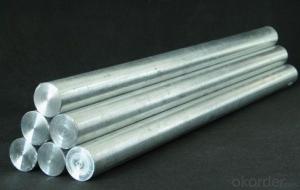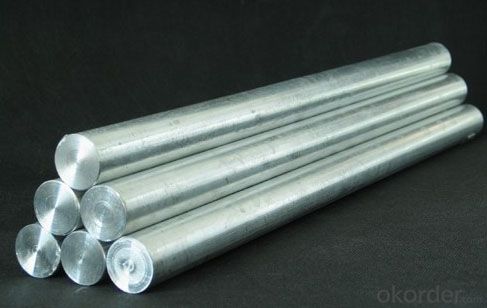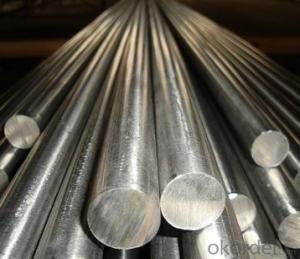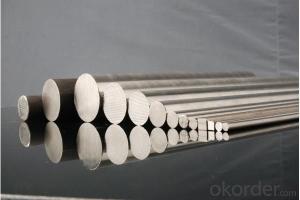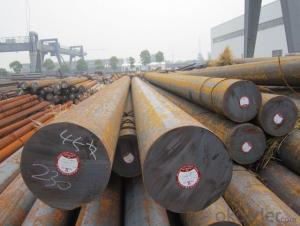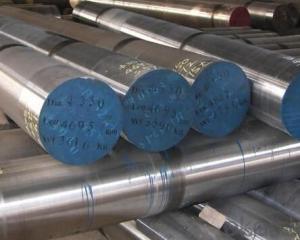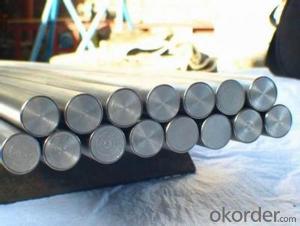Special Steel 310 Stainless Steel Round Bar
- Loading Port:
- China main port
- Payment Terms:
- TT OR LC
- Min Order Qty:
- 30 m.t.
- Supply Capability:
- 10000 m.t./month
OKorder Service Pledge
OKorder Financial Service
You Might Also Like
Specification
Product information:
Standard | ASTM | ||||||||||
Grade | astm310 | ||||||||||
MOQ | 1 Metric Ton | ||||||||||
Diameter | 10mm~1500mm | ||||||||||
Length | 6m,12m or as required. | ||||||||||
Diameter Tolerance | As required | ||||||||||
Condition of delivery | Hot rolled,Cold Rolled or as required. | ||||||||||
Chemical Composition(%) | |||||||||||
C | Si | Mn | P | S | Cr | ||||||
≤0.25 | ≤1.50 | ≤2.00 | ≤0.045 | ≤0.03 | 24.00-26.00
| ||||||
Ni | |||||||||||
19.00-22.00 | |||||||||||
Mechanical Properties(In Quenching and Tempering) | |||||||||||
Tensile strength | Yield strength | Elongation | Reduction in Area | Impact | Hardness | ||||||
(σb/MPa) | (σs/MPa) | (δ5/%) | (ψ/%) | (J) | (HB) | ||||||
≥205 | ≥520 | ≥40 | ≥50 | - | ≤187 | ||||||
Product Show:
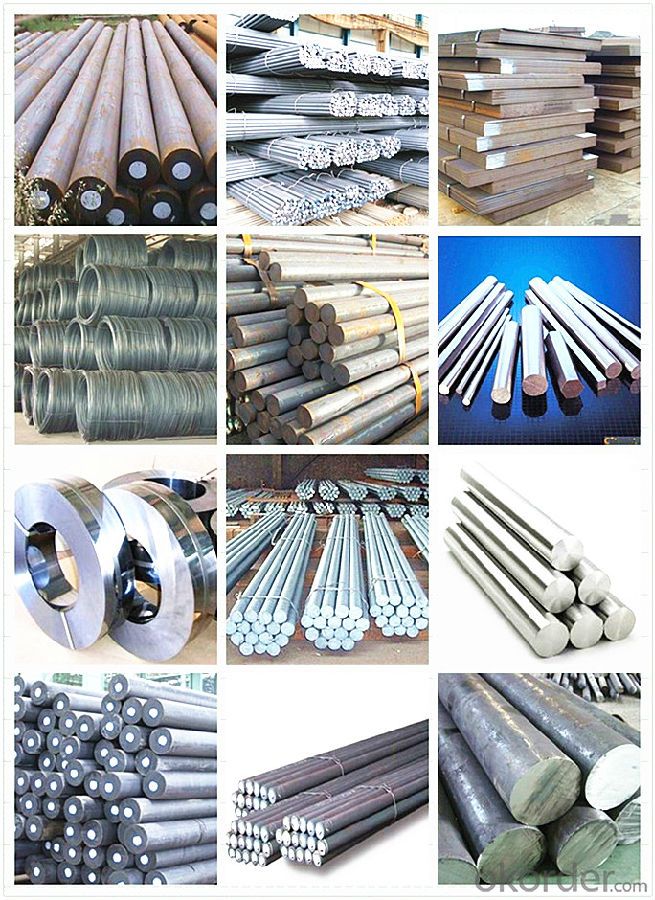
Workshop Show:
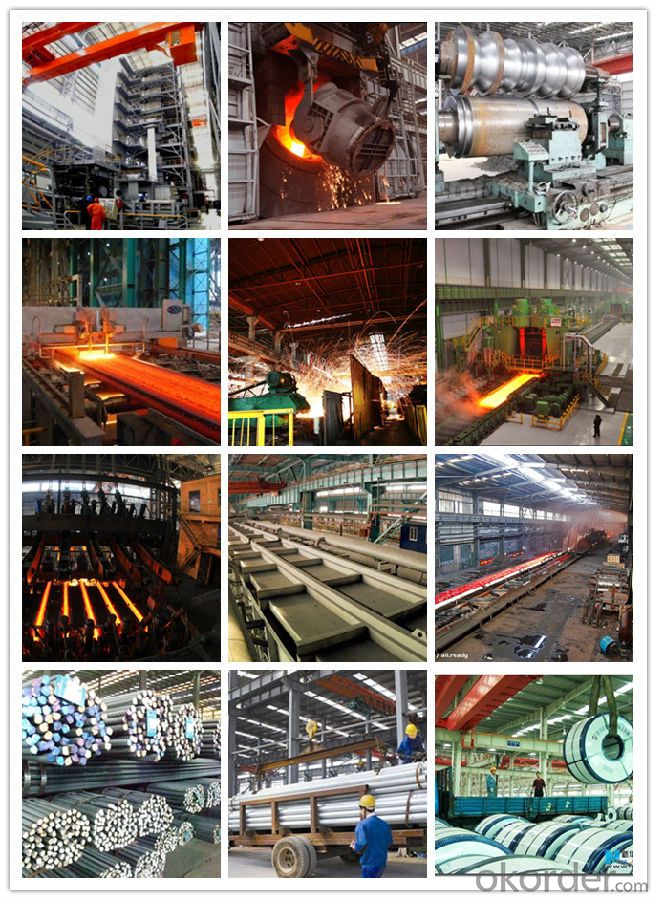
Shipping
1. FedEx/DHL/UPS/TNT for samples, Door-to-Door;
2. By Air or by Sea for batch goods, for FCL; Airport/ Port receiving;
3. Customers specifying freight forwarders or negotiable shipping methods!
Delivery Time: 3-7 days for samples; 5-25 days for batch goods.
Payment Terms
1.Payment: T/T, L/C, Western Union, MoneyGram,PayPal; 30% deposits; 70% balance before delivery.
2.MOQ: 1pcs
3.Warranty : 3 years
4.Package Informations: 1) EXPORT, In 20 feet (GW 25 ton) or 40 feet Container (GW 25 ton)
2)as customer's requirement
Why choose us?
(1) The leading exporter in China special steel industry.
(2) Large stocks for various sizes, fast delivery date.
(3) Good business relationship with China famous factories.
(4) More than 7 years steel exporting experience.
(5) Good after-sales service guarantee.
- Q: How is special steel tested for quality and durability?
- Special steel is tested for quality and durability through a series of rigorous processes and tests. These tests are designed to ensure that the steel meets the required standards and can withstand various conditions and applications. One common method used to test special steel is the tensile strength test. This test measures the maximum amount of stress that the steel can withstand before breaking or deforming. It is conducted by applying a pulling force on a sample of the steel until it reaches its breaking point. The results of this test determine the steel's ability to resist external forces and its overall strength. Another important test is the hardness test. The hardness of the steel is a critical factor in determining its durability. This test involves measuring the resistance of the steel to indentation or scratching. The steel sample is pressed against a hard surface, and the depth of the indentation is measured. The harder the steel, the more resistant it is to wear and deformation. In addition to these mechanical tests, special steel is also subjected to various chemical and metallurgical tests. These tests help determine the chemical composition and microstructure of the steel, which are crucial factors in ensuring its quality and durability. For example, spectroscopic analysis is used to determine the exact chemical composition of the steel, while metallography allows for the examination of the steel's microstructure, including the presence of any impurities or defects. Furthermore, various non-destructive testing methods are employed to assess the steel's internal structure without causing any damage to the material. These methods include ultrasonic testing, magnetic particle inspection, and radiographic testing. Ultrasonic testing uses high-frequency sound waves to detect any internal flaws or defects in the steel, while magnetic particle inspection relies on the application of magnetic fields to identify surface cracks or discontinuities. Radiographic testing, on the other hand, uses X-rays or gamma rays to examine the internal structure and detect any defects that may compromise the steel's quality and durability. Overall, the testing of special steel for quality and durability is a comprehensive process that combines mechanical, chemical, metallurgical, and non-destructive testing methods. Through these tests, manufacturers can ensure that the steel meets the required standards and can perform reliably in various applications, thereby guaranteeing its quality and durability.
- Q: How does special steel perform in cryogenic wear resistance?
- Special steel typically performs well in cryogenic wear resistance. This is because special steel alloys are specifically designed to withstand extreme temperatures, including cryogenic conditions. These alloys often possess excellent hardness, toughness, and resistance to deformation at low temperatures, making them highly resistant to wear and damage in cryogenic environments.
- Q: How does special steel contribute to the machinability of products?
- Special steel contributes to the machinability of products by offering enhanced properties such as higher strength, improved wear resistance, and increased hardness. These qualities allow for easier cutting, shaping, and forming during the machining process. Additionally, special steel may contain alloying elements that improve its thermal conductivity and reduce the risk of deformation or cracking, leading to better overall machinability.
- Q: How does the composition of special steel affect its properties?
- The composition of special steel greatly affects its properties. By adjusting the levels of various elements such as carbon, chromium, manganese, and nickel, the hardness, strength, corrosion resistance, and heat resistance of the steel can be altered. For example, increasing the carbon content in steel can enhance its hardness and strength, while adding chromium can improve its resistance to corrosion. Overall, the composition of special steel plays a crucial role in determining its specific properties and suitability for various applications.
- Q: What are the properties of weathering steel?
- Weathering steel, also known as Corten steel, possesses several key properties. Firstly, it has a high resistance to corrosion, making it suitable for outdoor applications. Secondly, it forms a protective layer of rust on its surface, which not only adds to its aesthetic appeal but also acts as a barrier against further corrosion. Additionally, weathering steel is durable and strong, making it suitable for various structural applications. Lastly, it has the ability to withstand extreme weather conditions, including high temperatures and heavy rainfall, without deteriorating.
- Q: How is special steel classified based on its mechanical properties?
- Special steel is classified based on its mechanical properties by considering factors such as its strength, hardness, toughness, and ductility. These properties play a crucial role in determining the steel's ability to withstand specific applications and environments.
- Q: How is special steel classified?
- Special steel is classified based on its chemical composition, physical properties, and intended use. It can be categorized into various types such as stainless steel, tool steel, alloy steel, and high-speed steel, each designed to meet specific requirements and applications in industries like automotive, aerospace, construction, and manufacturing.
- Q: What are the factors affecting the machinability of special steel?
- The factors affecting the machinability of special steel include the composition and microstructure of the steel, the hardness and strength of the steel, the presence of impurities or inclusions, the cutting tool and its geometry, the cutting speed and feed rate, the coolant or lubricant used during machining, and the machine tool and its rigidity.
- Q: What is the impact of carburizing on the properties of special steel?
- Carburizing, also known as case hardening, is a heat treatment process that involves introducing carbon into the surface layer of special steel. This process has a significant impact on the properties of the steel, enhancing its hardness, wear resistance, and strength. One of the main effects of carburizing is the formation of a hard outer layer, known as the case, which is rich in carbon. The diffusion of carbon atoms into the steel matrix during carburizing increases the carbon content at the surface, resulting in a higher hardness compared to the core. This hardened case provides excellent resistance against wear, abrasion, and surface fatigue, making it well-suited for applications that require high durability, such as gears, camshafts, and bearings. Additionally, carburizing enhances the strength of the steel, as the increased carbon content improves the material's ability to form martensite, a hard, crystalline structure. This martensitic transformation further contributes to the hardness and strength of the carburized steel, making it suitable for applications that require high load-bearing capacity, such as shafts and axles. Furthermore, carburizing can improve the fatigue resistance of special steel. The hardened case formed during carburizing helps to distribute stress more evenly across the surface, reducing the likelihood of crack initiation and propagation. This increased resistance to fatigue failure makes carburized steel suitable for components subjected to cyclic loading, such as gears and springs. However, it is important to note that carburizing can also have some drawbacks. The increased carbon content at the surface can lead to reduced ductility and toughness, making the material more prone to brittle fracture. To mitigate this issue, it is common to use a lower carbon content steel for the core, ensuring a balance between hardness and toughness. In conclusion, carburizing has a significant impact on the properties of special steel. It enhances hardness, wear resistance, and strength, making it suitable for applications that require durability, high load-bearing capacity, and fatigue resistance. However, the process should be carefully controlled to maintain a balance between hardness and toughness, ensuring the material's overall performance and reliability.
- Q: What are the requirements for special steel used in defense equipment manufacturing?
- The requirements for special steel used in defense equipment manufacturing typically include high strength and durability, resistance to corrosion and wear, good toughness and impact resistance, as well as the ability to withstand extreme temperatures and harsh environments. Additionally, the steel must meet stringent quality control standards and industry specifications to ensure its reliability and performance in critical defense applications.
Send your message to us
Special Steel 310 Stainless Steel Round Bar
- Loading Port:
- China main port
- Payment Terms:
- TT OR LC
- Min Order Qty:
- 30 m.t.
- Supply Capability:
- 10000 m.t./month
OKorder Service Pledge
OKorder Financial Service
Similar products
Hot products
Hot Searches
Related keywords
